Top 6 Three

Viewpoint: How the glyphosate-cancer controversy became a moral crusade—and a threat to scientific progress
Sometimes the clear weight of evidence coupled with a dose of common sense is enough to show what’s right ...

‘Natural health’ and conspiracy sites exploit social media to fester opposition to GMO crops. Here’s a study about what can be done to stop it
The unsatisfactory answer to 'How do we control the spread of disinformation?" may be, "We don't know yet." ...

Podcast: How activists and politicians derailed South Australia’s attempt to embrace GMO crops
Activists in Australia are manipulating politicians with fear and doubt to restrict farmer choice ...

Is ‘natural’ better than ‘artificial’? Skincare products underscore why that view is wrongheaded
Synthetic and 'chemical-sounding' preservatives in cosmetics are safer than the alternatives that are marketed as 'natural' ...

If Africa adopts biotech crops, will anti-GMO Europe retaliate against the continent’s most important trading partner?
How would Europe react if GMO crops became commonplace in Africa? ...
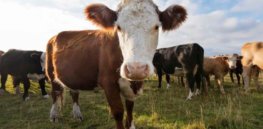
Fighting climate change with gene editing: Can we slash cows’ methane production?
Preventing ruminant methane from being produced in the first place seems a sensible way to limit its damaging effects ...

Video: ‘Blood on their hands’—Greens’ resistance to biotechnology blocks sustainable agriculture, climate change innovation, says GLP’s Jon Entine
Green advocacy groups are the single biggest impediment to sustainable agriculture ...

Viewpoint: Documentary ‘Modified’ peddles falsehoods about GMOs, pesticides and ‘corporate control’ of food
"Modified” is an elaborate lie about genetic engineering ...

Podcast: Farm Aid concert meant to support US agriculture spreads GMO, ‘factory farming’ myths
In recent years, Farm Aid's laudable effort to support US agriculture has morphed into a promotional event for organic food ...

Infographic: Eliminating synthetic fertilizer won’t solve agriculture’s nitrogen pollution problem
The proposed solution is worse than the problem it hopes to solve ...
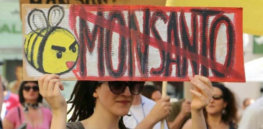
Viewpoint: ‘Big Ag’ owns scientists who endorse safety of GMOs? Busting the anti-biotech movement’s favorite myth
Scientists are generally inclined to dislike big companies--but they know that biotechnology has made our food supply safer and more ...

Tackling Stone Age stereotypes and misconceptions including this: They made tools out of more than just stone
Although most depictions of Stone Age hunters are male, women and children played a huge part in the creation and ...

Viewpoint: Hidden conflicts of interest cripple IARC’s biased glyphosate-cancer evaluation
IARC has no clear understanding of what a conflict of interest is (or doesn’t care) ...

Sensory overload: Some people genetically wired to detest bright lights, big sounds
'This world is not built for sensitive people. In fact, our world is designed perfectly for those who are detached.' ...
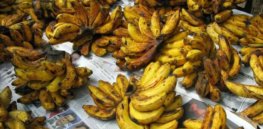
Viewpoint: Our favorite Cavendish banana may be heading towards extinction—Scientists say only a biotech solution, blocked by anti-GMO activists, can save it
Shall we just resign ourselves to the eventual demise of the banana, or take steps to save it? ...

Viewpoint: Why science hasn’t given us a cure for cancer: We’re still ‘trying to understand it’
Each permutation of cancer requires a different approach, therapy, or method of management ...
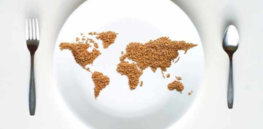
Viewpoint: Organic farmer’s New York Times opinion piece perpetuates ‘fantasy’ of small growers feeding the world
Barber’s perspective on GM and patented seeds follow the party line of the organic industry ...
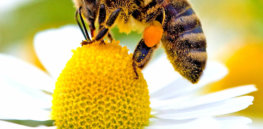
Environmental media, advocacy groups in uproar after EPA grants long-term approval for alleged ‘bee-killing’ pesticide sulfoxaflor. Here’s what the science says
This discussion needs to shift from politics to science and the law ...
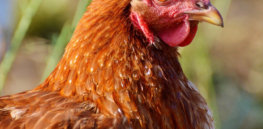
Explaining the debate over GMOs—and what is or isn’t ‘natural’— through the genetics of chickens
Chickens (and their eggs) provide a surprisingly down-to-earth illustration of the profound implications of the modern genetic revolution ...

Pharmacogenetics and depression: Genetic screening could eliminate trial-and-error approach to medications
Antidepressants may soon be added to the growing list of medications genetically matched to patients most likely to respond — ...

‘Origins’: Humans have been shaped more by Earth’s evolving geography than by genetics
In astrobiologist Lewis Dartnell's newest book, Origins: How the Earth Made Us, he outlines how geology has shaped human evolution ...

Podcast: Glyphosate-tainted breakfast? Plant geneticist Kevin Folta debunks fear-based CBS Roundup report
Does the network get it right? Not even close, says Folta ...

How a genetically altered virus could save Florida’s decimated orange industry from citrus greening disease
In the early 1970s there was a ubiquitous television ad promoting Florida orange juice including the line, "a day without orange juice ...
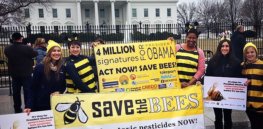
How NPR, Washington Post, Bloomberg and other media botched reporting on EPA’s ‘ban’ of 12 ‘bee-killing’ neonicotinoid insecticides
If headlines are the measure, groups claiming bees are endangered by misuse of pesticides just scored a significant victory ...

More than one-third of Americans do not know that foods with zero genetically modified ingredients contain genes—and why that matters
More than a third of Americans think that only GMO foods contain genes. Even worse--people aren't looking to scientists to ...
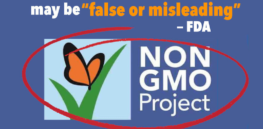
Viewpoint: Will FDA finally crack down on ‘false and misleading’ Non-GMO Project labels?
How much will mega food companies care until FDA decides to enforce the law? ...
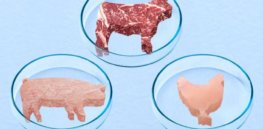
Viewpoint: Lab-grown meat should replace farm animals as food
Why so many people resist cultured meat -- and why they shouldn't ...

